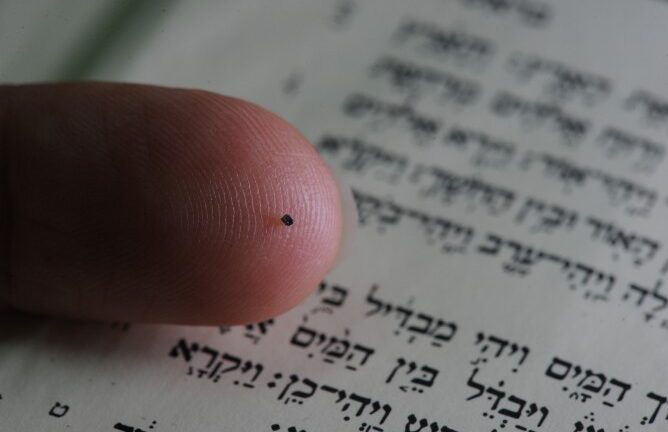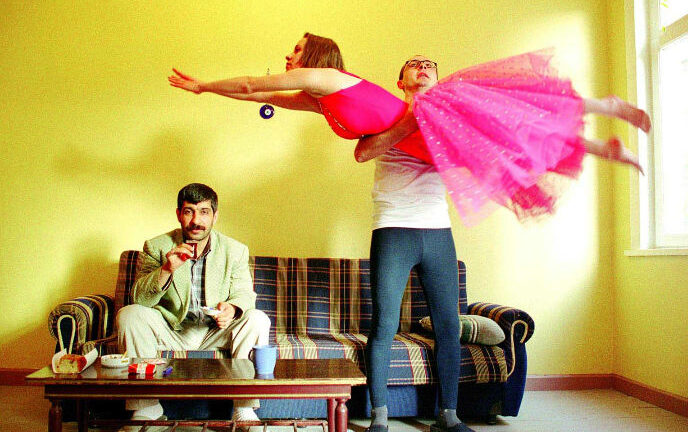Israeli TV content is such a hot ticket today that MIPTV 2014 — the world’s “most powerful and prestigious market and creative incubator for content on every screen” – is dedicating a special event, “Focus on Israel TV.IL,” to exploring the international success of Israeli TV at its April 7-10 event in Cannes.
Two sessions — “How to Create Successful Scripted Formats/Dramas” and “Israeli Innovation Seminar: From Startup to TV” will focus on the Jewish state.
Avi Nir, CEO of Israel’s Keshet Media Group, will give a keynote address on how to drive television innovation in the digital age. Yoni Bloch, CEO and cofounder of Israel’s Interlude, will head a panel on how content creators can help the entertainment industry engage kids in digital media.
Top Israeli formats now screening around the world are “Rising Star,” “Prisoners of War”/“Homeland,” “Hostages” and “I Can Do That.” That’s not to belittle the likes of “New York,” “Little Mom,” “Magic Malabi Express,” “The Ran Quadruplets,” “Mom and Dadz” or “Only One Knows,” among many other international shows based on Israeli formats.

“The Israeli market is a very creative one, and we see it in more than just the TV industry,” says Avi Armoza, CEO of Armoza Formats.
“Israel is known as the startup nation, and is incredibly advanced in the fields of high-tech, medicine and R&D across various sectors. Much like with these industries, Israel is rapidly becoming well known for its creativity in the TV formats industry. Every success helps the next format and gives confidence to broadcasters that Israeli formats can, and will, travel well,” he tells ISRAEL21c.
According to Eurodata TV Worldwide, more than 60 percent of entertainment programming launched in Israel in 2013 was original production, as were 50% of fiction series. And that has international producers tuning in to Israeli originality.
“The Israeli audiovisual industry combines innovation and creativity with the cutting-edge use of new technologies to better engage the audience around programming. As the world’s leading event dedicated to content development and new creative trends, it is opportune that MIPTV should host this special focus on Israel,” says Laurine Garaude, director of the television division at Reed MIDEM, producer of MIPTV.
Not lost in translation
“Homeland” (“Prisoners of War”/”Hatufim”) is Israel’s biggest success in a local format converted to an international one. However, for the last decade, Israel’s production houses have been innovating and creating content for the global audience.

Featured at MIPTV will be the Israel Export and International Cooperation Institute, Keshet International, Dori Media, Armoza Formats, Satlink Communications, HOT, Acappella – The Big Picture, The Box/Screenz, Reshet, United Studios of Israel, YES, United King Films (TELAD), Invest in Israel – Ministry of Economy, i24news, Talit Communications, Ananey Communications, and Gil Productions.
Armoza Formats, the pioneer of Israeli formats sold abroad, last year signed 135 new international deals involving 37 formats across all genres. The company has a catalogue of 60-plus formats, and currently more than 60 productions taking place in about 30 countries.
“There are three main reasons that these regions are looking to Israeli formats,” Armoza tells ISRAEL21c. “The first is that Israeli culture is very comfortable with risk-taking and living with uncertainty. The formats industry is the business of not knowing – no matter what you do, you can never know 100% that a format will be a success. Therefore being relatively comfortable working with uncertain situations helps in taking the risks that are necessary to creating successful formats.
“The second key success factor lies in the budgetary restrictions of the market. While the Israeli market doesn’t work with the same budget levels as some other countries, the viewers here are accustomed to seeing incredibly well-produced shows. Therefore, we have gained the experience and knowledge on how to be creative with our solutions and produce cost-effective shows that still have the appearance of big-budget productions, making them more accessible and attractive to other territories,” he says.

Jonathan Baruch, of Rain Management Group/StoryBy Entertainment in the US, concurs. “Israelis produce TV shows for a very modest budget so they have to focus on characters and stories,” he tells ISRAEL21c. “It’s not about loud noises and explosions. People are demanding smarter programming.”
Plotlines about real people constitute the third reason Israeli content is in high demand, says Armoza. “There seems to be something in the essence of Israeli dramas that makes them appealing to viewers. People respond well to the combination of stories of everyday, real people within the setting of a greater social and national drama,” he says.
The strength of Israeli storylines is crucial for adaptation to foreign audiences. After US broadcasters announced that they were picking up formats for “New York,” “Little Mom” and “Magic Malabi Express,” Dori Media Group CEO Nadav Palti said: “These formats can be easily adapted to other cultures across all continents, so we hope this international success can be extended in the future.”
Armoza Formats marked new territory when the BBC and Canal+ purchased rights to “Hostages” (a 10-part thriller about a surgeon’s family taken hostage in order to coerce the doctor to assassinate the prime minister on the operating table) and picked it up as a ready-made format — making it their first Israeli drama to air in Hebrew with English subtitles.
Reality and game shows
In addition, Armoza says, producers are always looking for new game shows and unique reality television series.
Israeli content creators happily watched CBS pick up “The Money Pump” and NBC snag “Who’s Still Standing?” game shows. ABC snatched the reality series “Rising Star” and Shixi Media snapped up “Master Class” and “Girlfriends.”

Among the hyped shows set to be unveiled at MIPTV are Keshet’s “Boom!” – a trivia game replete with a fake bomb that explodes when an incorrect answer is given; and “The Big Picture” – in which home viewers vie for $1 million with in-studio players. Armoza will unveil “Runway In My Closet,” a fashion related game show; “Pull Over,” an on-location game show where owners of old vehicles can win a brand new car; and “Celebrity Battle,” a music-based prime-time format with a twist. In fact, Armoza is bringing nine new formats to MIPTV ranging from game shows to drama.
“We look to provide the type of shows that our clients need, but within a format that they would have never expected,” Armoza says. “This MIPTV, we are focusing on these in-demand genres, bringing them to the table with a fresh perspective.”
A MIPTV session called “Business Opportunities in Israel” will no doubt ring in new business deals.
Filming in Israel
It took a team of 150 Dutch builders and craftspeople just 10 days to recreate Syrian President Bashar Al-Assad’s palace in Israel. The set is part of the $30 million production of FX’s new drama, “Tyrant,” now filming in Kfar Saba 20 minutes from Tel Aviv.
The big-budget “Tyrant” is part of a new trend of filming shows on location in Israel. The first was last year’s “Dig” filmed by NBCUniversal in Jerusalem.
“Tyrant” is even grander. In addition to the set, the 12-acre Kfar Saba compound includes two studios, dining tents and dressing rooms. The municipality will receive about $145,000 in rent and property tax, as well as educational and cultural events for residents courtesy of the production company.
The big screen is also part of the trend. Natalie Portman is in town filming her directorial debut based on “A Tale of Love and Darkness” while the Chinese romantic comedy “Old Cinderella” filmed in Israel in 2013. Segments of “Homeland” also were filmed locally.
















